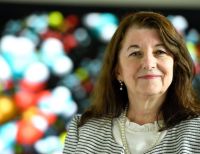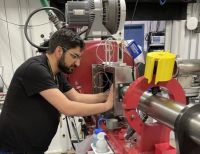Experts from the SNF Agora Institute at Johns Hopkins University and New_ Public have published an innovative new approach to measure the health of online communities. According to their report, titled "Dynamic Polycentrism," in order to determine the health of a digital space, experts must first determine its level of pluralism.
Over the past few decades, the Internet has become an increasingly important public convening place. However, as explained in the report, these new online spaces are not necessarily healthy. Many digital communities have become dominated by a single ideological group, discouraging outsiders from participation and limiting democratic discussion.

Read the report
Dynamic Polycentrism
A Way to Measure Pluralism in Online Communities without Excessive Surveillance
Alternatively, online spaces that encourage pluralism and polycentricism allow for power to be shared equitably between multiple groups. Here, no one ideology dominates its peers; instead, the community is intentionally structured to accept differences and encourage discussion. This type of online space takes work to create and maintain, but, according to the report, ultimately leads to healthier, more democratic communities.
"Democracy is not a given. It is learned," explained Milan de Vries, an associate research scholar at SNF Agora and the report's primary author. "Pluralism—the ability to sustain a community in the face of disagreement and in the face of difference—is a key element of what [public] gathering places teach. Being able to measure pluralism is therefore critical to understanding whether the online spaces we are building today are ultimately strengthening or weakening our shared society."
With this in mind, scholars at the SNF Agora Institute and New_ Public created a new approach to measure how pluralistic an online community is. By examining which users interact with what content, experts can check to see whether a space is veering too strongly towards a single ideology.
Milan de Vries
SNF Agora associate research scholar
"Being able to measure pluralism is... critical to understanding whether the online spaces we are building today are ultimately strengthening or weakening our shared society."
"It is imperative [that digital spaces] be used by and foster interaction between a diverse representation of the community," the report says. "If we wish to build healthy digital spaces, builders need some measure of the quality or strength of those interactions."
The report drew its conclusions from a series of conversations led by SNF Agora Director Hahrie Han and New_ Public Co-Director Eli Pariser. According to de Vries, the organizations' complementary goals made this collaboration easy.
"For us, the overlap felt natural," he said. "At the SNF Agora, we focus on democracy—How does it emerge and what does it take to sustain it. At New_Public, they're interested in how to build healthy, online communities. ... Given the importance and impact of online platforms on our democracy, we found a natural shared interest.
"As our lives become more and more digitally connected, more and more of our key, interpersonal interactions happen online," de Vries continued. "Those interactions are what make our democracy tick. In Ancient Greece, when democracy first emerged, people gathered in the agora. The physical center of town—with its marketplaces, and temples, and institutions of government—is what made those interactions possible. We live our lives in both our physical communities and, increasingly, in these digital gathering places. The way our interactions are shaped and guided online has as much impact on our shared, communal existence as the ancient agora did to the Greeks."
To learn more, [read the full "Dynamic Polycentrism" report on New_ Public's website















